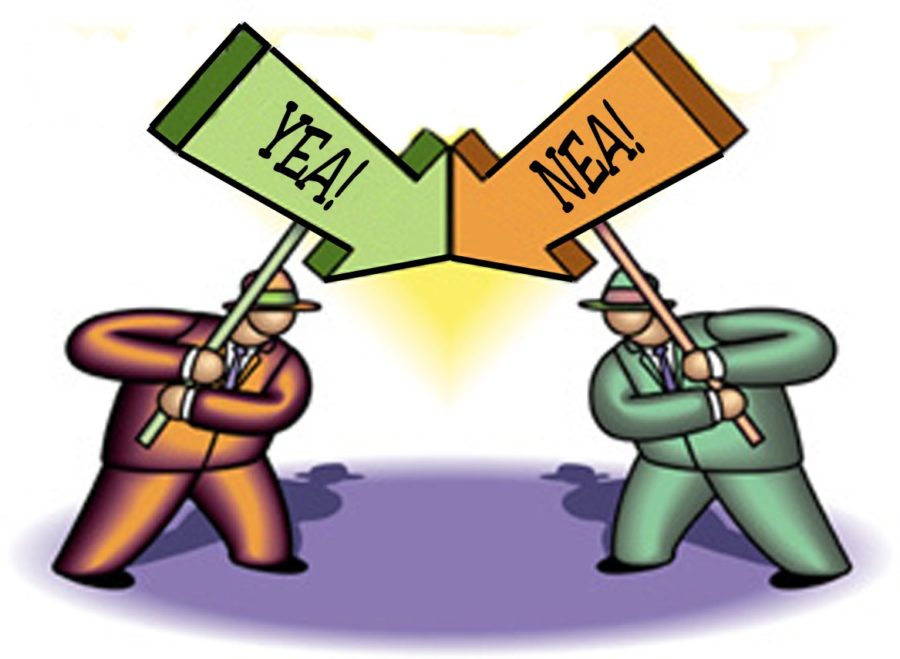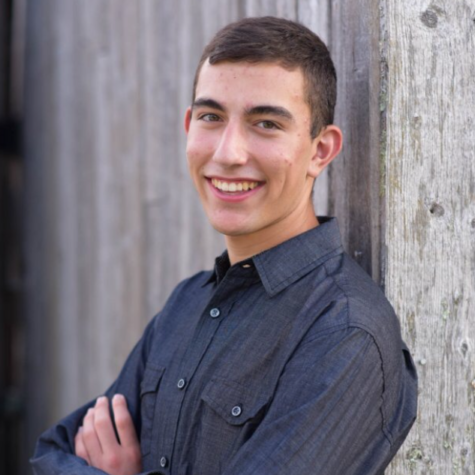SBRHS Debate Team Victorious in First Meet
December 11, 2017
On Wednesday, December 6, debate teams from high schools all over Massachusetts met at Old Rochester Regional High School in the first meet of the season. All Somerset Berkley Regional High School teams secured victories in all their debates — a great way to kick off the season.
In each meet, teams of two students participate in two debates. There are two types of teams: affirmative teams and negative teams. Affirmative teams present plans based on the resolve. This year, the resolve is increasing funding and/or regulation to secondary and/or elementary education. Negative teams expose the flaws of the affirmative plan. In a debate, an affirmative team and a negative team battle over the same five stock issues or contentions: topicality, inherency, need for change, solvency, and disadvantages. An affirmative team wins topicality if they are able to prove that their plan stays on topic with the resolve (this is the easiest stock issue for an affirmative team to win). Inherency deals with what the barrier is to the affirmative plan; an affirmative win on this contention depends on how well they are able to identify this barrier. Need for change asks why there is a need for change and solvency answers how the affirmative plan with solve this need for change. Disadvantages gives the negative team a chance to point out any problems with the affirmative plan that would outweigh any advantage of it. In order to win a debate, the affirmative team must win each stock issue. If a negative team wins any contention, then the negative team has won. Additionally, debates are structured and have four eight-minute constructives, four cross examinations, four four-minute rebuttals, and prep time to give each person an equal chance to talk.
Somerset Berkley has five teams this year. On Affirmative Varsity A Team are Jillian Cabral and Jillian Platt. On Negative Varsity A Team are Ryan Silverman and Maxwell Cabana. Affirmative Novice B Team members are Jaden Cranshaw and Abigail Montag. Maya Newhook and Cassandra Pay make up Negative Novice B Team. Santiago Abrill and Jacob Biello are on Durfee Affirmative Novice A Team. A unique arrangement was made with Durfee so they could debate; they still represent SBRHS.
I was able to interview some of the SBHRS debaters. First, I interviewed both Jillian Cabral and Jillian Platt. Both were on debate team last year. Platt told me that their “plan is about the federal government increasing regulation in charter schools to eliminate discrimination against kids deemed unfit to be a part of their schools.” When I asked them about the strengths of their plan, Cabral said, “in regards to contentions or stock issues, I’d have to say that our need for change argument, stating that there is too much discrimination of children with disabilities, children in minority groups, and of other children that may be deemed unfit to attend charter schools is the strongest.”
Platt added, “also the fact that we decided to argue for charter schools, rather than public education [was a strength]. I feel like negative teams would focus their evidence towards public or private schools. Charters are sort of a grey area between the two.” They faced Bridgewater-Raynham Negative Varsity A and Bridgewater-Raynham Negative Varsity C. Cabral told me that during these debates “the best attack that we have dealt with so far is the idea that our inherent barrier, in part being the Tenth Amendment, is null due to the Fourteenth Amendment.”
The Tenth Amendment states “the powers not delegated to the United States by the Constitution, nor prohibited by it to the States, are reserved to the States respectively, or to the people,” while the Fourteenth Amendment states “all persons born or naturalized in the United States and subject to the jurisdiction thereof, are citizens of the United States and of the State wherein they reside. No State shall make or enforce any law which shall abridge the privileges or immunities of citizens of the United States; nor shall any State deprive any person of life, liberty, or property, without due process of law; nor deny to any person within its jurisdiction the equal protection of the laws.”
Platt said that even before they learned they won both debates, “I felt confident that we did a good job, especially as it was our first debate meet of the year. We worked well together to defend our plan in both debates.” Cabral continued. “I think the debates last night offered many challenges but overall I think we held up pretty well, and even did good, considering it was out first time being an Affirmative Varsity A Team.”
Generally, A teams are the best teams. When I asked the two what they enjoyed most about debate, Platt told me, “We spend time together creating our plans and going to meets and I feel like you get to know people you might not meet otherwise. Also, it helps give me confidence for public speaking and in general. And it’s just fun to participate in debate.” Cabral agreed with Platt but also reported, “additionally I’d just like to add that I really like the way debates are structured. I feel as though it is fair and allows each team the opportunity to make a solid argument without unnecessary interruption.”
I was also able to talk with Maxwell Cabana from the Negative Varsity A Team. This was his first debate team meet. He told me he was “nervous, but confident in my partner and [my] ability to react to anything coming out way.” He debated against Sandwich High School Affrimative Varsity A Team and Bishop Connoly Affirmative B Team. When I asked him what plans these teams debated him on, he said, “my partner and I went against a sex education reform and budget increase plan, and a SEL [Social Emotional Learning] funding plan which diverted Pell funds to emotional learning in public schools.” Cabana continued: “for the Sex Education reform, my partner an I used strong logic-backed arguments to address the plans flaw. This flaw lied in the plan being optional to a state and could be refused, not solving the problem presented. For our second debate about SEL education, we addressed that most emotional and behavioral problems occurred at home and that school is not the place to fix these issues.” Cabana also commented on his team’s performance: “I think that our first debate was a learning experience, but our second was a major success. Overall, I think my performance was good and my partner’s was phenomenal.” I asked him what he enjoyed most. Cabana said, “I definitely enjoyed the feeling of success the most.”
It is clear the SBRHS debate team is off to a good start and will hopefully continue to perform well for the rest of their debates. Although it is too late to join a team, you could still be an alternate (a substitute in case someone is out sick). Email Mr. Chase if you are interested!



